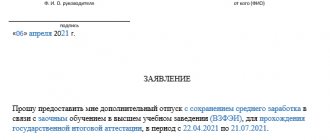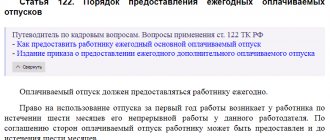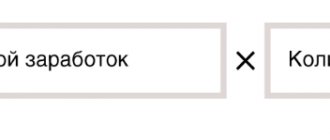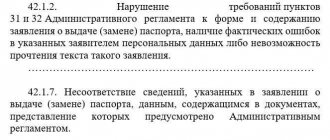From March 1, 2022, a new edition of the Labor Code of the Russian Federation will come into force, including the section regulating labor protection and its by-laws that have been updated. Let's look at the main changes and innovations and figure out what and how an occupational safety specialist needs to take into account in his work.
On the last day of the spring session, deputies of the State Duma adopted amendments to the Labor Code of the Russian Federation in the 3rd reading[1]. At the same time, the Russian Ministry of Labor posted the texts of bills detailing the innovations for discussion. The main goal of the changes is to improve mechanisms for preventing industrial injuries and occupational diseases.
Do not work in hazardous conditions
From March 1, 2022, another new article 214.1 “Prohibition of work in hazardous working conditions” appears in the Labor Code of the Russian Federation.
Now, according to the Labor Code of the Russian Federation, the head of an organization is obliged to suspend work at workplaces that, according to the results of a special assessment, are classified as a dangerous class of working conditions.
In hazardous workplaces, work must be stopped until the hazard is eliminated.
Workers who find themselves out of work through no fault of their own should not suffer. They retain all wage guarantees for the period of work stoppage:
- employees retain their jobs,
- workers are paid average wages.
If the employee agrees, he can be transferred to another place with a salary no lower than the previous one.
After the reasons for which the workplace was recognized as belonging to the dangerous class have been eliminated, an unscheduled special assessment must be carried out to confirm the reduction in the class of hazardous working conditions. And only after this can work be resumed at these workplaces.
About the special assessment:
How to pay additional tariff fees when conducting SOUT
How to confirm the deadline for extending the SOUT declaration?
When changing positions, the employee must sign the SOUT card
Algorithm of the organization’s actions if, according to a special assessment, workplaces are classified as hazardous
- Inform the employee of the results of the special assessment and the recognition of his workplace as dangerous.
- Temporarily remove the employee from work while maintaining average earnings or transfer to another workplace with a salary no lower.
- Together with the trade union (if there is one), draw up an action plan to reduce the level of danger.
- You need to send the action plan to the labor inspectorate.
- Conduct an unscheduled special assessment.
- After the special assessment determines a reduced hazard class, allow the employee to enter the workplace and resume activities.
This prohibition does not apply to work related to preventing or eliminating the consequences of emergency situations.
The need for interpretation of the Labor Code of the Russian Federation
From a lawyer’s point of view, any industrial code, including the Labor Code, is a kind of literary work. As with every literary work, the codex has its own storyline.
For the code, the linearity of the plot is fundamentally important, that is, consistently regulated legal relations from their origin to their end.
For example, the Civil Procedure Code of the Russian Federation is distinguished by a well-developed linear plot - the tasks of the Civil Procedure Code, filing a claim, accepting a claim, consideration in the first instance, in the appellate instance, cassation, supervisory authority, execution of the decision.
The storyline of the Labor Code of the Russian Federation is very disrupted. For example, issues of termination of an employment contract are integrated into the “Employment contract” section, and, accordingly, issues related to the working regime and labor discipline are located after the articles regulating issues of termination of an employment contract.
From the point of view of casuistry, such a logical “zigzag” can be considered as a continuation of labor relations after their termination.
Video and audio in offices and enterprises are allowed under a new article of the Labor Code of the Russian Federation
From March 2022, a new article 214.2 will come into force. “Employer's rights in the field of labor protection”, which expands the company’s rights in terms of monitoring employees.
The organization has the right:
- for the purpose of monitoring the safety of work, use instruments, devices, equipment for remote video, audio or other recording of production processes;
- conduct electronic document management in the field of labor protection;
- provide remote access to production monitoring;
- provide remote access to the databases of electronic documents of the organization on labor protection to authorities and state control bodies.
In this case, the organization is obliged to ensure the storage of video, audio or other recordings of production processes.
Previously on the topic:
Is it legal to monitor working hours using software and video cameras?
Filming the production process
Organizations and individual entrepreneurs will have additional powers in the field of labor protection. Based on the new article 214.2 of the Labor Code of the Russian Federation, all employers will be able to:
- conduct remote audio and video recording, as well as record the production process in other ways. Records can be stored. If an employee wants to know what device is used to remove him, then according to the new article 216.2 of the Labor Code of the Russian Federation, the employer is obliged to provide such information;
- conduct electronic document management in the field of labor protection;
Prepare labor safety documents in a special service Try for free
- provide regional labor inspectorates with access to observations of the production process and to databases of electronic documents in the field of labor protection.
Let us add that employers still have the right to video record the production process. But it does not apply everywhere, but only in certain industries. For each such industry, the Ministry of Labor issued an order approving labor safety rules. For example, for motor transport - order No. 871n dated 12/09/20, for construction - order No. 883n dated 12/11/20, etc.
Regulations on the labor protection service
The provisions on the occupational safety service have been moved from Article 217 of the Labor Code of the Russian Federation to Article 223.
In an organization with more than 50 employees, an occupational safety service must be created or the position of an occupational safety specialist must be introduced. A company with a smaller number of employees creates an occupational safety service or hires an occupational safety specialist, taking into account the specifics of its activities.
An organization or individual entrepreneur providing services in the field of labor protection must be accredited.
Standards for issuing personal protective equipment
The organization is obliged to suspend from work an employee who refuses to use the PPE issued to him.
Previously on the topic:
Can traveling workers store PPE at home?
A new version of Article 221 of the Labor Code of the Russian Federation appears in the Labor Code of the Russian Federation. A list of products that belong to PPE has been added to it.
The list of PPE now includes:
- special clothing and special shoes,
- dermatological protection products,
- protective equipment for respiratory organs, hands, head, face, hearing, eyes,
- fall protection equipment,
- other personal protective equipment
The list is open; the organization has the right to supplement it with the necessary PPE, taking into account its specifics. The Ministry of Labor must approve uniform standard standards for the issuance of personal protective equipment and flushing agents.
Introductory part
Let us immediately note that most of the amendments are more formal than practical.
In particular, provisions on industrial accidents are separated into a separate chapter 36.1 of the Labor Code of the Russian Federation. And the rules relating to the labor protection service will be set out in Article 223 of the Labor Code of the Russian Federation (now it is Article 217 of the Labor Code of the Russian Federation). Complete training and receive a certificate of occupational safety specialist Submit an application
But there are also innovations that require the employer to take certain actions. An example is the obligation to suspend from work employees who refuse to use personal protective equipment issued to them (see “Employers have a new basis for removing an employee from work”).
In this article we will talk about this and other changes that have practical application. All innovations will come into force on March 1, 2022.
Microdamages (microtraumas) of workers
In the Labor Code of the Russian Federation, from March 1, 2022, Chapter 36.1 will appear, dedicated to industrial accidents. It is introduced immediately after Chapter 36 “Ensuring the rights of workers to labor protection.” It will contain several articles about industrial accidents, the procedure for their investigation, preparation of materials, etc. All these articles existed before, but essentially nothing has changed in them.
On this topic:
How to account for injury reduction financing for income taxes
You only need to pay attention to the new article about microtraumas. This is Article 226, which previously talked about “Financing measures to improve working conditions and safety.” This article is now called “Microdamages (microtraumas).” And provisions on financing measures to improve working conditions have been moved to Article 224.
Microdamages (microtraumas) are abrasions, bruises, soft tissue bruises, superficial wounds and other injuries received by employees while performing job duties or performing work on behalf of the employer, which did not result in health problems or temporary disability.
On this topic:
During a work trip, the employee was involved in an accident. Will this be a work injury?
The organization is obliged to independently keep records and consider the circumstances and reasons that caused microdamages (microtraumas) to employees.
Investigations into such events should be carried out on the basis of an appeal from the victim to his immediate supervisor.
New vacation calculation
Photo: depositphotos/AndreyPopov
The new version of the Labor Code may include an addition that “the number of days of annual paid leave in one month is established by dividing the full duration of annual paid leave established for the employee by 12 months.” According to Mitrofanova, the amendment should legislatively regulate disputes that arise when paying for employees’ rest, she noted.
“For example, a person has worked for six months and wants to go on vacation. There is an understanding that part of the vacation comes in advance, part is already earned. So that the employer can explain this to the employee, the amendment proposes a methodology for calculating rest days,” the specialist comments.
You need to take conditionally 28 days of the required vacation for a specific profession and divide it into 12 months. The result will be 2.33. If you multiply this by 6 months of work, it turns out that the employee earned 14 calendar days. If an employee asks for 21 days, then he already has 14 and another 7 is in advance. Valentina Mitrofanova
Director of the Institute of Professional Personnel
Thanks to this technique, the employer and employee can easily calculate the vacation balance already earned, Mitrofanova said.
Changes to the Labor Code of the Russian Federation from March 1, 2022 Table
| The essence of the changes | Article/chapter | Previous edition until March 1, 2022 | New edition after March 1, 2022 |
| The Labor Code of the Russian Federation has introduced an open list of PPE and clarified the standards for issuing them free of charge | Article 221 of the Labor Code of the Russian Federation | Providing workers with personal protective equipment When working with harmful and (or) dangerous working conditions, as well as work performed in special temperature conditions or associated with pollution, workers are provided with free special clothing, special footwear and other personal protective equipment that have undergone mandatory certification or declaration of conformity. protection, as well as flushing and (or) neutralizing agents in accordance with standard standards, which are established in the manner determined by the Government of the Russian Federation. The employer has the right, taking into account the opinion of the elected body of the primary trade union organization or other representative body of workers and its financial and economic situation, to establish standards for the free issuance of special clothing, special shoes and other personal protective equipment to employees, which improve, compared to standard standards, the protection of employees from existing places of harmful and (or) dangerous factors, as well as special temperature conditions or pollution. The employer, at his own expense, is obliged, in accordance with established standards, to ensure the timely issuance of special clothing, special footwear and other personal protective equipment, as well as their storage, washing, drying, repair and replacement. | Article 221. Providing workers with personal protective equipment To protect against the effects of harmful and (or) dangerous factors in the working environment and (or) pollution, as well as for work performed in special temperature conditions, workers are provided with free personal protective equipment and detergents that have been confirmed compliance in the manner established by the legislation of the Russian Federation on technical regulation. Personal protective equipment includes special clothing, special shoes, dermatological protective equipment, respiratory, hand, head, face, hearing, eye protection, fall protection and other personal protective equipment, the requirements for which are determined in accordance with with the legislation of the Russian Federation on technical regulation. Rules for providing workers with personal protective equipment and flushing agents, as well as uniform Standard standards for the issuance of personal protective equipment and flushing agents are established by the federal executive body exercising the functions of developing and implementing state policy and legal regulation in the field of labor, taking into account the opinion of the Russian Tripartite commission for regulation of social and labor relations. The standards for the free issuance of personal protective equipment and flushing agents to employees are established by the employer on the basis of uniform Standard standards for the issuance of personal protective equipment and flushing agents, taking into account the results of a special assessment of working conditions, the results of an assessment of professional risks, the opinion of the elected body of the primary trade union organization or other authorized representative body of employees ( if such a representative body exists). The employer, at his own expense, is obliged, in accordance with established standards, to ensure the timely issuance of personal protective equipment, their storage, as well as washing, dry cleaning, drying, repair and replacement of personal protective equipment. |
| Prohibition of work in hazardous working conditions | Article 214.1 of the Labor Code of the Russian Federation | Did not have | Article 214.1. Prohibition of work in hazardous working conditions The employer is obliged to suspend work at workplaces in cases where the working conditions at such workplaces, based on the results of a special assessment of working conditions, are classified as a dangerous class of working conditions. Work is suspended until the grounds that led to the establishment of a dangerous class of working conditions are eliminated. During the suspension of work at the workplaces specified in part one of this article, employees employed in such workplaces are provided with the guarantees established by part three of Article 216.1 of this Code. Elimination of the grounds that led to the establishment of a dangerous class of working conditions is carried out on the basis of an action plan that is developed by the employer, taking into account the opinion of the elected body of the primary trade union organization or other representative body of workers (if there is such a representative body). A copy of the action plan approved by the employer is sent by the employer to the territorial body of the federal executive body authorized to conduct federal state control (supervision) over compliance with labor legislation and other regulatory legal acts containing labor law norms at the location of the employer. The resumption of the employer's activities at the workplaces specified in part one of this article is allowed only based on the results of an unscheduled special assessment of working conditions, confirming a reduction in the class of working conditions. The prohibition established by this article does not apply to work related to the prevention or elimination of the consequences of emergency situations, as well as to certain types of work, the list of which is approved by the Government of the Russian Federation, taking into account the opinion of the Russian Tripartite Commission for the Regulation of Social and Labor Relations. |
| Video, audio or other recording of work processes is allowed | Article 214.2 of the Labor Code of the Russian Federation | There was no article in the Labor Code of the Russian Federation. The right to videotape has been legalized in certain industries, such as construction and transport. | Article 214.2. Rights of the employer in the field of labor protection The employer has the right: to use, for the purpose of monitoring the safety of work, devices, devices, equipment and (or) complexes (systems) of devices, devices, equipment that provide remote video, audio or other recording of work processes , ensure storage of received information; conduct electronic document management in the field of labor protection; provide remote access to monitoring the safe performance of work, as well as to databases of electronic documents of the employer in the field of labor protection to the federal executive body authorized to exercise federal state control (supervision) over compliance with labor legislation and other regulatory legal acts containing labor law norms, and its territorial bodies (state labor inspectorates in the constituent entities of the Russian Federation). |
| Articles on accidents are included in a separate chapter; an article on microtraumas has appeared | Chapter 36.1 of the Labor Code of the Russian Federation | There was no separate chapter | Chapter 36.1. Investigation, registration (review), recording of microdamages (microtraumas), accidents Article 226. Microdamages (microtraumas) Article 227. Accidents subject to investigation and recording Article 228. Obligations of the employer in case of an accident Article 228.1. Procedure for notification of accidents Article 229. Procedure for forming commissions to investigate accidents Article 229.1. Time frame for accident investigation Article 229.2. Procedure for conducting accident investigations Article 229.3. Conducting investigations of accidents by state labor inspectors Article 230. Procedure for preparing accident investigation materials Article 230.1. Procedure for registration and recording of industrial accidents Article 231. Consideration of disagreements on issues of investigation, registration and recording of accidents |
| The organization is required to keep records of microtraumas | Article 226 of the Labor Code of the Russian Federation | Did not have | Article 226. Microdamages (microtraumas) For the purposes of this Code, microdamages (microtraumas) mean abrasions, bruises, soft tissue bruises, superficial wounds and other injuries received by employees and other persons participating in the production activities of the employer, specified in part two of Article 227 of this Code, when they perform labor duties or perform any work on behalf of the employer (his representative), as well as when carrying out other lawful actions due to labor relations with the employer or performed in his interests, which do not result in health problems or temporary disability (hereinafter — microdamages (microtraumas) of workers). In order to prevent industrial injuries and occupational diseases, the employer independently records and considers the circumstances and causes that led to the occurrence of microdamages (microtraumas) to employees. The basis for registering a microdamage (microtrauma) of an employee and considering the circumstances and reasons that led to its occurrence is the victim’s appeal to his immediate or superior manager, the employer (his representative). Recommendations for recording microdamages (microtraumas) of workers are approved by the federal executive body that carries out the functions of developing and implementing state policy and legal regulation in the field of labor, taking into account the opinion of the Russian Tripartite Commission for the Regulation of Social and Labor Relations. |








